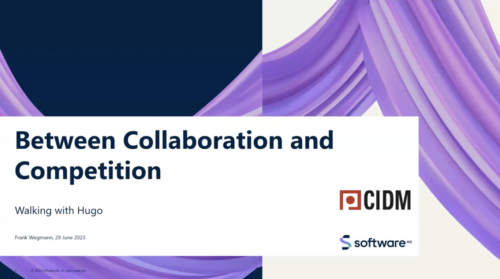Recorded on
September 14, 2023
 Intelligent terminology retrieval and management with TermCatch and Kalcium Quickterm
Intelligent terminology retrieval and management with TermCatch and Kalcium Quickterm
A centrally managed and validated termbase forms the basis for consistent and correct company terminology. One of the challenges of managing such a termbase is that terminology is spread across different areas of your company and is constantly being changed and created. In one department, a new Excel list suddenly appears. In others, your terminology runs free in all manner of texts, from technical manuals and marketing brochures to software user interfaces and your own website. But how can you capture this "wild" terminology, tame it, and integrate it into your existing terminology? And how can AI support you in this and other terminology management tasks?
In our webinar we will show you:
- Where terminology may be hiding in your company
- How to extract, cluster, harmonize, and validate it
- How to use AI in order to be more efficient in your terminology work
- How the new TermCatch integration for the established terminology management and workflow tool Kalcium Quickterm supports you in this process
Presented by: Klaus Fleischmann and Mikael Lundahl

Klaus Fleischmann studied translation and IT in Vienna, holds an MA in Conference Interpreting from Monterey, California, and a MAS in Technical Communication from Krems, Austria. In 1996, he founded Austria-based Kaleidoscope, a company implementing content, translation, and terminology management processes for internationally active companies. Kaleidoscope develops online collaboration software for enterprise-level terminology workflow, translator query management, in-country review etc., making the translation quality process comprehensible and strategically manageable. In 2007, he became CEO of Austria´s leading LSP, Eurocom Translation Services. Always active in the industry, Klaus got voted into the Gala Board of Directors in 2015 and 2017
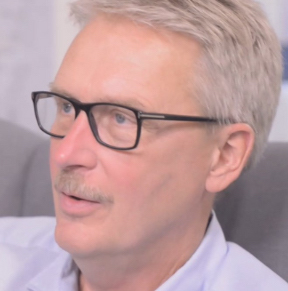
Mikael Lundahl works with language processes and language technology. From content creation to translation and publishing. From marketing material to technical documentation and software strings. His focus is on how terminology, with processes and tools, can support both the writing and translation processes.
Fodina Language Technology partners with and sells products from Kaleidoscope and Acrolinx. But Fodina also develops tools that help customers to build their company terminologies based on existing documentation, standards, or competitor's web information. AI-supported term extraction from many file formats and automated clustering of identified terms into concepts. Through integrations to both Acrolinx and Kaleidoscope products, we have full tool support for the terminology process that we recommend customers to use. Our tools support working with terms in English, German, and Swedish.

 Tristan is Product Director at DeltaXML, a technology company with world-leading software products for the management of change in structured content. He has a deep understanding of DeltaXML’s product suite and loves to help customers create extra value in their content using change management. Tristan is a father to three daughters, a movie lover, and a keen runner.
Tristan is Product Director at DeltaXML, a technology company with world-leading software products for the management of change in structured content. He has a deep understanding of DeltaXML’s product suite and loves to help customers create extra value in their content using change management. Tristan is a father to three daughters, a movie lover, and a keen runner.













 Peter Tauter, our Vice President of Product Management, is a seasoned professional with a background in computational linguistics, AI, and computer science. With 20+ years in B2B software development and product management, Peter is passionate about technology and how it can improve lives.
Peter Tauter, our Vice President of Product Management, is a seasoned professional with a background in computational linguistics, AI, and computer science. With 20+ years in B2B software development and product management, Peter is passionate about technology and how it can improve lives.




 Stilo showcases a comprehensive, end-to-end process for converting pharmaceutical documentation, beginning with the source DOCX Word file. This journey encompasses the creation of automation rules, execution of the conversion, meticulous quality assurance, and, ultimately, the seamless publication of the final output through Oxygen. Explore how Stilo's Migrate effortlessly addresses prevalent conversion challenges, including the precise identification and generation of product name keys, resolution of table alignment discrepancies, and an array of other crucial tasks. Dive deep into the intricacies of transforming your industry-specific content from its initial state, ensuring a flawless and efficient transition.
Presented by: TJ Dhaliwal, Stilo
Stilo showcases a comprehensive, end-to-end process for converting pharmaceutical documentation, beginning with the source DOCX Word file. This journey encompasses the creation of automation rules, execution of the conversion, meticulous quality assurance, and, ultimately, the seamless publication of the final output through Oxygen. Explore how Stilo's Migrate effortlessly addresses prevalent conversion challenges, including the precise identification and generation of product name keys, resolution of table alignment discrepancies, and an array of other crucial tasks. Dive deep into the intricacies of transforming your industry-specific content from its initial state, ensuring a flawless and efficient transition.
Presented by: TJ Dhaliwal, Stilo
 TJ Dhaliwal is a Technical Sales Product Specialist at Stilo, helping customers uncover solutions to their content conversion needs. With a solid technical background in engineering and a passion for public speaking, he’s successfully bridged the gaps between project stakeholders. As a problem solver, TJ has helped several enterprise-level companies convert tens of thousands of pages of their content to DITA.
TJ Dhaliwal is a Technical Sales Product Specialist at Stilo, helping customers uncover solutions to their content conversion needs. With a solid technical background in engineering and a passion for public speaking, he’s successfully bridged the gaps between project stakeholders. As a problem solver, TJ has helped several enterprise-level companies convert tens of thousands of pages of their content to DITA.
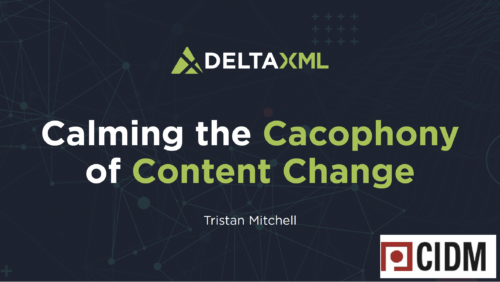
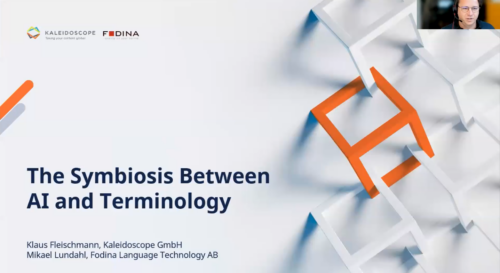
 Klaus Fleischmann studied translation and IT in Vienna, holds an MA in Conference Interpreting from Monterey, California, and a MAS in Technical Communication from Krems, Austria. In 1996, he founded Austria-based Kaleidoscope, a company implementing content, translation, and terminology management processes for internationally active companies. Kaleidoscope develops online collaboration software for enterprise-level terminology workflow, translator query management, in-country review etc., making the translation quality process comprehensible and strategically manageable. In 2007, he became CEO of Austria´s leading LSP, Eurocom Translation Services. Always active in the industry, Klaus got voted into the Gala Board of Directors in 2015 and 2017
Klaus Fleischmann studied translation and IT in Vienna, holds an MA in Conference Interpreting from Monterey, California, and a MAS in Technical Communication from Krems, Austria. In 1996, he founded Austria-based Kaleidoscope, a company implementing content, translation, and terminology management processes for internationally active companies. Kaleidoscope develops online collaboration software for enterprise-level terminology workflow, translator query management, in-country review etc., making the translation quality process comprehensible and strategically manageable. In 2007, he became CEO of Austria´s leading LSP, Eurocom Translation Services. Always active in the industry, Klaus got voted into the Gala Board of Directors in 2015 and 2017
 Mikael Lundahl works with language processes and language technology. From content creation to translation and publishing. From marketing material to technical documentation and software strings. His focus is on how terminology, with processes and tools, can support both the writing and translation processes.
Fodina Language Technology partners with and sells products from Kaleidoscope and Acrolinx. But Fodina also develops tools that help customers to build their company terminologies based on existing documentation, standards, or competitor's web information. AI-supported term extraction from many file formats and automated clustering of identified terms into concepts. Through integrations to both Acrolinx and Kaleidoscope products, we have full tool support for the terminology process that we recommend customers to use. Our tools support working with terms in English, German, and Swedish.
Mikael Lundahl works with language processes and language technology. From content creation to translation and publishing. From marketing material to technical documentation and software strings. His focus is on how terminology, with processes and tools, can support both the writing and translation processes.
Fodina Language Technology partners with and sells products from Kaleidoscope and Acrolinx. But Fodina also develops tools that help customers to build their company terminologies based on existing documentation, standards, or competitor's web information. AI-supported term extraction from many file formats and automated clustering of identified terms into concepts. Through integrations to both Acrolinx and Kaleidoscope products, we have full tool support for the terminology process that we recommend customers to use. Our tools support working with terms in English, German, and Swedish.
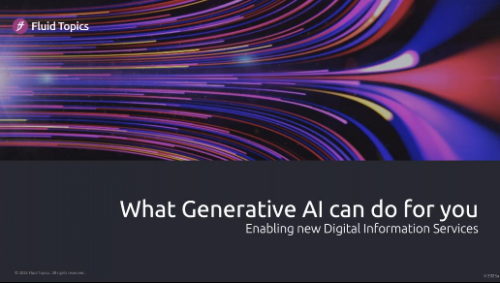

 Fabrice Lacroix is a serial entrepreneur and a technology pioneer. He has been working for 25 years on the development of innovative solutions around search technology, content enrichment and AI. He is the founder of Fluid Topics, the leading Content Delivery Platform that reinvents how users search, read and interact with technical documentation.
Fabrice Lacroix is a serial entrepreneur and a technology pioneer. He has been working for 25 years on the development of innovative solutions around search technology, content enrichment and AI. He is the founder of Fluid Topics, the leading Content Delivery Platform that reinvents how users search, read and interact with technical documentation. 



 Christopher Hill is the Technical Product Manager for Harmonizer at Data Conversion Laboratory. Chris is an experienced IT professional who started programming in the 1980s. Since the early 2000s, Chris’ experience includes work as a support engineer, product manager, and user interface designer, helping organizations transition data and content to modern digital formats and platforms.
Christopher Hill is the Technical Product Manager for Harmonizer at Data Conversion Laboratory. Chris is an experienced IT professional who started programming in the 1980s. Since the early 2000s, Chris’ experience includes work as a support engineer, product manager, and user interface designer, helping organizations transition data and content to modern digital formats and platforms.